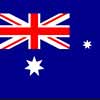Choose Your Study Destiny
Choice is your own !! Pick a destination which you want to study in Abroad. And Agile Migrate Consultants Will help you any at time ..


Australia, officially known as the Commonwealth of Australia, is a country that occupies the entire Australian continent, including the island of Tasmania and numerous smaller islands. It is the sixth-largest country in the world by total area, covering approximately 7.7 million square kilometers (2.97 million square miles). Australia is unique as it is both a country and a continent, often referred to as the "island continent" due to its isolation and vast size.
Geography
Australia is characterized by its diverse landscapes and climates, which include:
Deserts: Over one-third of the country is arid or semi-arid, with notable deserts such as the Great Sandy Desert, Simpson Desert, and Gibson Desert.
Coastal Regions: The eastern and southeastern coasts are more temperate and densely populated, featuring fertile lands and significant urban centers like Sydney and Melbourne. The Great Dividing Range, a mountain chain running along the east coast, influences rainfall patterns across the region.
Tropical Rainforests: Found primarily in the northeast, these areas are rich in biodiversity.
Outback: This remote interior region includes vast plains and is sparsely populated, home to many Indigenous Australian communities.
Australia's highest peak is Mount Kosciuszko, which stands at 2,228 meters (7,310 feet) above sea level. The country has a total coastline of approximately 34,218 kilometers (21,262 miles) and claims an extensive exclusive economic zone.
Climate
Australia is known for being the driest inhabited continent on Earth, with an average annual rainfall of less than 500 mm (about 20 inches). The climate varies significantly from region to region:
The northern areas experience a tropical climate with wet and dry seasons.
The central regions are arid or semi-arid.
The southern regions have temperate climates with four distinct seasons.
Population and Culture
Australia has a population of about 25 million people, with a high degree of ethnic diversity. Nearly a quarter of Australians were born overseas, contributing to a vibrant multicultural society. Major cities like Sydney, Melbourne, Brisbane, and Perth are cultural hubs that celebrate various traditions through festivals, cuisine, and arts. The Indigenous peoples of Australia, including Aboriginal and Torres Strait Islander communities, have rich cultural histories that date back over 50,000 years. Their connection to the land is profound and continues to influence Australian identity today.
Economy
Australia has a mixed economy that relies heavily on natural resources. Key sectors include:
Agriculture: Major exports include wool, beef, wheat, and wine.
Mining: Australia is rich in minerals such as iron ore and gold.
Tourism: The country's natural wonders like the Great Barrier Reef attract millions of visitors annually.
Government
Australia operates as a constitutional monarchy with a parliamentary democracy. The British monarch serves as the head of state, represented by the Governor-General. The country has a strong tradition of democratic governance and civil rights. In summary, Australia is a vast and diverse nation with unique geographical features, rich cultural heritage, and a robust economy that plays an important role on the global stage. Its blend of modern urban life and ancient traditions creates a distinctive identity that continues to evolve.
Australia is recognized as a great place to live and offers a world-class education. The Australian education system has produced professionals who have made significant impacts across the globe. Australia takes pride in its students who have achieved remarkable accomplishments and their contributions to the world. Australian education is acknowledged globally and sought after by many. The country leads in educational standards, providing high-quality learning experiences that meet the expectations of students. The combination of research, collaboration, teamwork, focused learning, and industry-specific curricula offers specialized learning experiences that help students succeed in their studies and careers. The Australian education system encompasses early childhood education, primary and secondary education, followed by tertiary education, which includes higher education and vocational training. It is structured under the Australian Qualifications Framework (AQF), ensuring that qualifications are recognized nationally and internationally. This framework promotes flexibility and pathways for students to progress through various levels of education. In summary, Australia's commitment to high-quality education and its supportive learning environment contribute to its reputation as a leading destination for students worldwide.
Course fees will depends on the course and colleges
Choice is your own !! Pick a destination which you want to study in Abroad. And Agile Migrate Consultants Will help you any at time ..